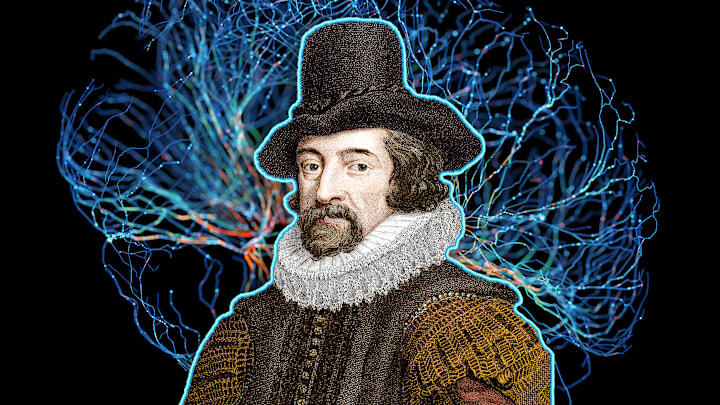Knowledge is power is one of the most proverbial of proverbs. It’s succinct enough to fit on a bumper sticker and clear enough that everyone can grok it. But what did it originally mean?
A version of the saying was first spotted in the writing of philosopher Francis Bacon in 1598, with a distinctly religious meaning: “Knowledge itself is a power whereby he knoweth.” This refers to the omnipotence of God, which is a pretty powerful power. From there, the saying evolved, as language tends to do. Knowledge is power appeared in the writing of many authors over the years, including Thomas Hobbes and Michel Foucault.
One of the most notable is Thomas Jefferson, who used the saying several times in connection with something quite appropriate: a planned state university in Virginia. Here’s an example from an 1817 letter [sic throughout]:
“[This university] will probably be within a mile of Charlottesville, and four from Monticello, if the system should be adopted at all by our legislature who meet within a week from this time. my hopes however are kept in check by the ordinary character of our state legislatures, the members of which do not generally possess information enough to percieve the important truths, that knolege is power, that knolege is safety, and that knolege is happiness.”
For Jefferson, knowledge is power was the perfect pro-education sentiment. But like most proverbs, knowledge is power has been twisted and turned around and played with plenty of times over the years. J.S. Blackie wrote, in 1874’s On Self-Culture, “The maxim that knowledge is power is true only where knowledge is the main thing wanted.” In 2006, a New Scientist writer observed, “If knowledge is power, then today everyone has enormous power.” Both of those quotations question the literal truth of knowledge is power, probably because so much actual power seems to stem from less-than-intellectual sources. Perhaps knowledge is power is a type of wishful thinking by the knowledgeable.
But maybe knowledge is power is true on a smaller scale than the all-knowingness of God or the absolute truth implied by the proverb. A 1943 quotation from Science and Mechanics cited in the Oxford English Dictionary is less lofty, but more practical: “Zooming demands for technical books of many kinds … bear witness to the truth of that ancient copy-book maxim, ‘Knowledge is power.’ ” Knowing how to do something, such as fixing a toaster, is certainly equivalent to the power to do that thing. So maybe knowledge is power after all.
Another aphorism, this one dating from the 1700s, resonates with the idea that knowledge is power: A little knowledge is a dangerous thing. That could easily be rephrased, more optimistically, as a little knowledge is a powerful thing.
Read More Origins of Famous Sayings:
